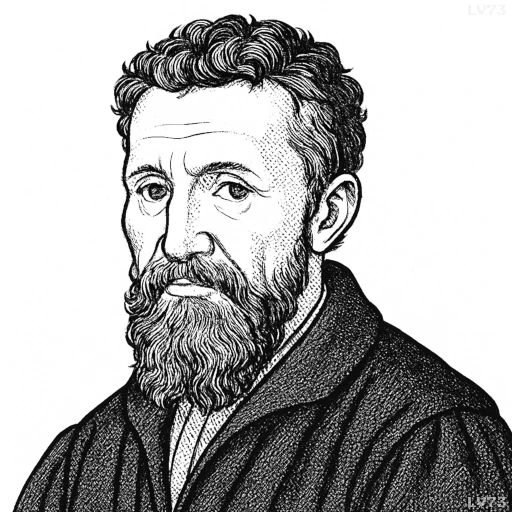“Genius is eternal patience.”

- March 6, 1475 – February 18, 1564
- Born in the Republic of Florence (now Italy)
- Sculptor, painter, architect, poet
table of contents
Quote
“Genius is eternal patience.”
Explanation
This quote by Michelangelo encapsulates his belief that true artistic genius requires not only creative talent but also the patience to persevere through the long and often painstaking process of creation. For Michelangelo, the act of sculpting or painting was far from instantaneous; it was a careful, deliberate process that required time, attention, and constant refinement. Even masterpieces like the David or the Sistine Chapel ceiling were products of many years of labor, during which Michelangelo’s patience allowed him to hone his craft and achieve a level of perfection that became synonymous with genius.
In modern terms, this quote resonates with the idea that mastery of any craft—whether in art, science, or business—is not achieved through quick flashes of inspiration but through a long period of dedication and hard work. The patience mentioned here refers to the ability to stay committed to a task, even when results are not immediately visible. For example, entrepreneurs or writers often face challenges of self-doubt and failure but continue their work with the patience required to eventually achieve success.
Michelangelo’s perspective aligns with a broader cultural appreciation for the process over the product. Creative geniuses like Ludwig van Beethoven in music or Leonardo da Vinci in science demonstrated that the true value of genius is not only in the final result but in the patience and perseverance required to create it. The quote also reflects a deeper philosophical notion: patience is not a passive virtue but an active force that allows the mind to cultivate and shape its vision into something enduring.
Would you like to share your impressions or related stories about this quote in the comments section?

